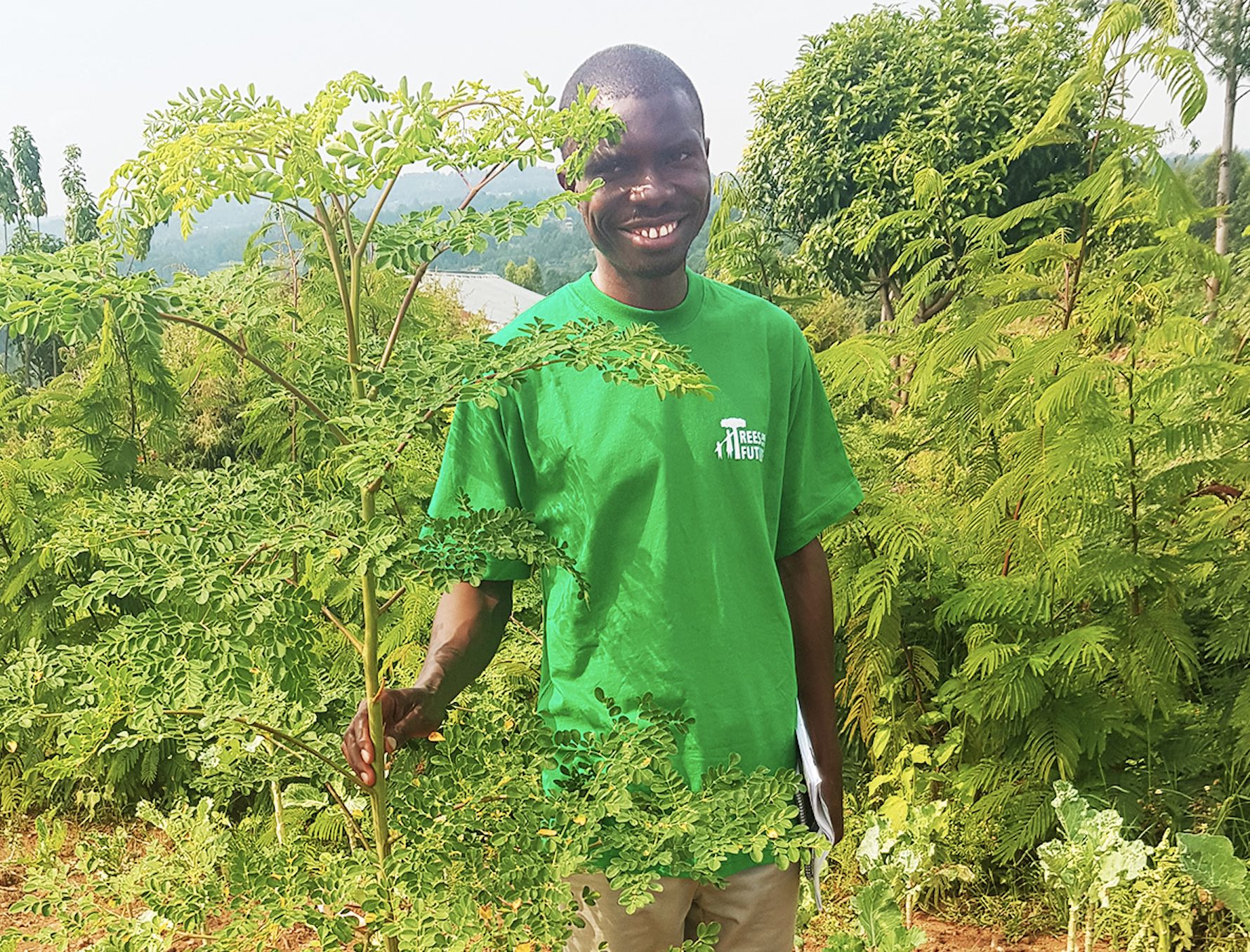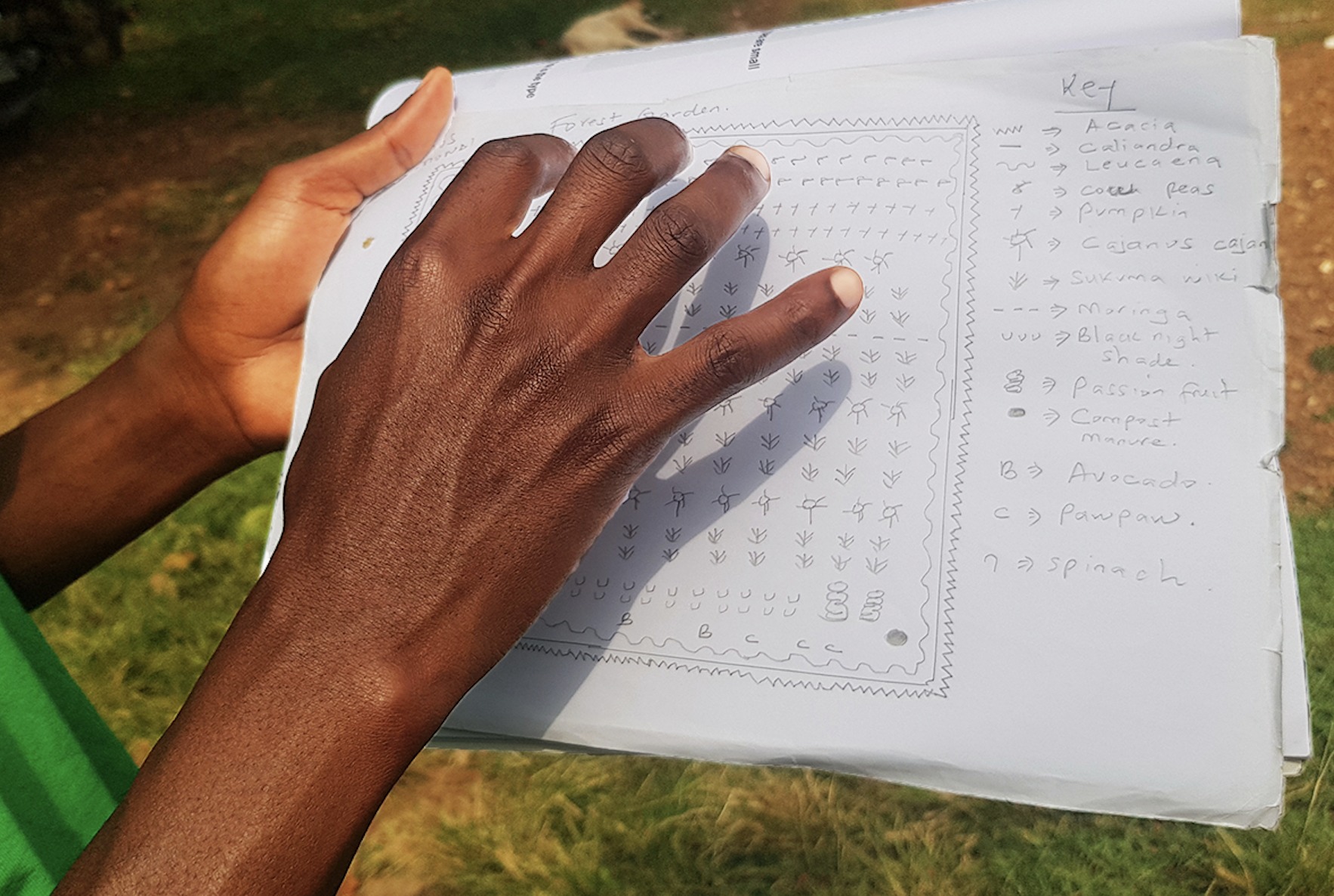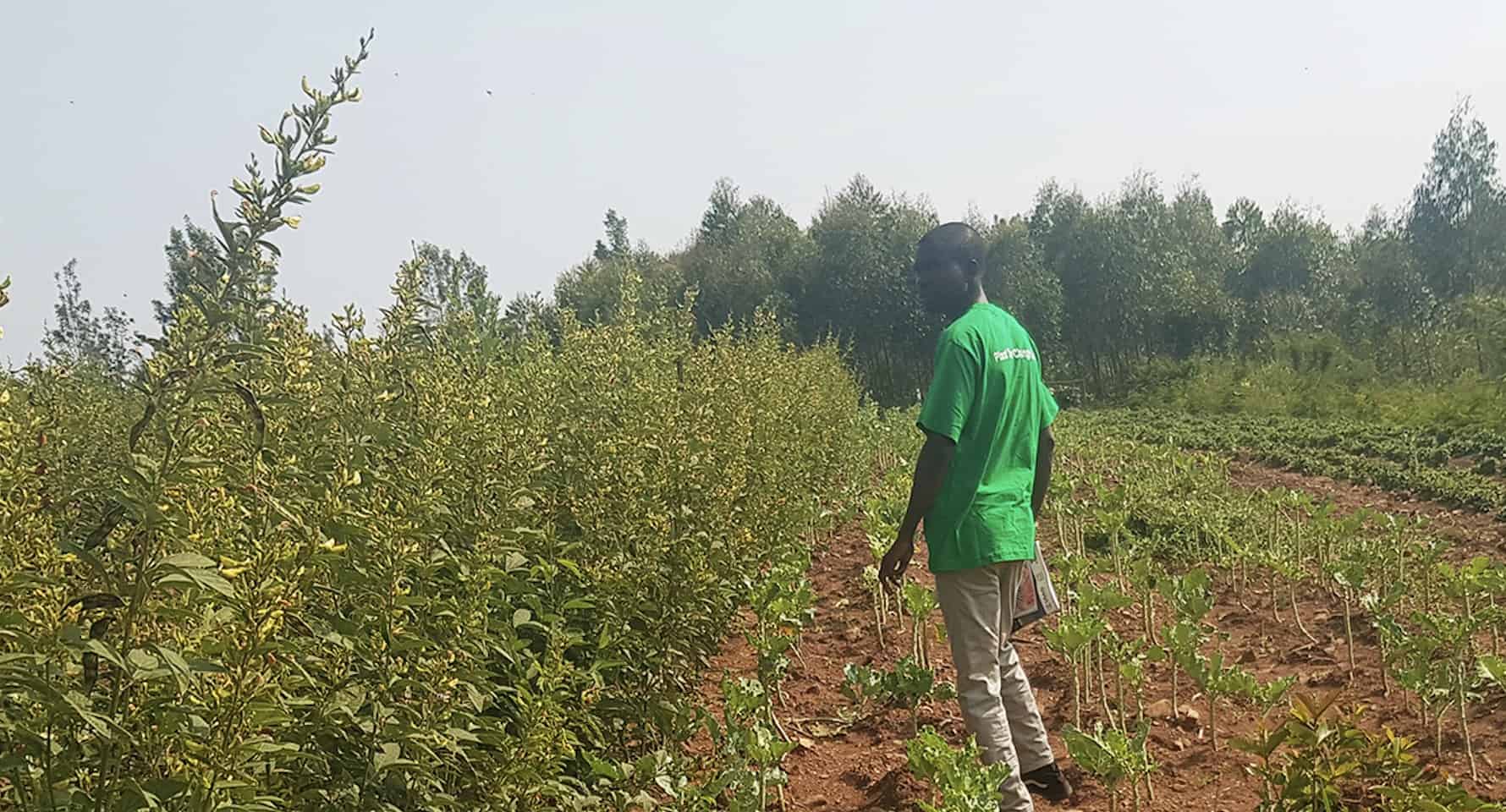The 33-year-old father of four took on farming in 2017 after his mother passed away.
“Professionally, I am a Certified Public Accountant in Kenya, but I opted to resign and venture into farming,” Amos says.

His late mother was a successful farmer, she had made her living growing and selling tree seedlings. But, around the globe, farmers are facing desertification, changing weather patterns, and higher seed prices. Amos was met with these challenges and struggled to succeed in his new career path.
His future as a farmer looked uncertain, but in 2020 Amos signed up for Trees for the Future’s Forest Garden training program alongside other farmers in his community. Local Trees for the Future staff train farmers in the Forest Garden Approach across sub-Saharan Africa, emphasizing agroforestry and sustainable farming techniques that benefit both the land and the farmer. The training program provides long-term, scalable solutions for farmers and their families.

“The project is promising rich returns,” Amos says. “We have initially jumped into [aid projects] that have stalled, subjecting us to losses, but Trees for the Future is showing a sustainable drive… I do not regret joining the program since the returns are fruitful.”
Local staff are experts in agroforestry and the Forest Garden Approach. They strive to provide farmers with the knowledge and expertise they need to thrive. On average, farmers in the program establish their Forest Gardens on a small section of their farmland, filling a half an acre with 2,500 – 4,000 trees and dozens of species by the end of the four-year program.
“I am gaining a lot of knowledge which I will pass on to other generations,” Amos says.
Amos points to crop diversification as one of the most valuable techniques he’s learned so far. As opposed to the more common monocrop approach to farming, crop diversification ensures a steady flow of income throughout the year and reduces risks related to pests and severe weather events.

Program participants also learn to establish their own tree nurseries, growing trees from seed on their own land. Much like his mother did before him, Amos is able to grow trees to support his family. Two years into the four-year training program, the accountant is confident in his new career and his future as a farmer.
“To me this is permanent employment.”
“We are happy when we help farmers realize their dreams, especially the smallholder farmers who feed the majority of the country’s population,” says Robert Mcyoo, the Trees for the Future Lead Technician of Amos’ project. “It feels good to see them comfortably eat healthy diets, educate their children, and develop their lives.”
Today, Amos and his family are doing just that – enjoying a nutritious diet and investing in themselves through the regular income provided by Forest Garden harvests.
Help more farmers like Amos restore landscapes and build stable lives through Forest Garden training. Donate to Trees for the Future today to make an impact on people and the planet.
